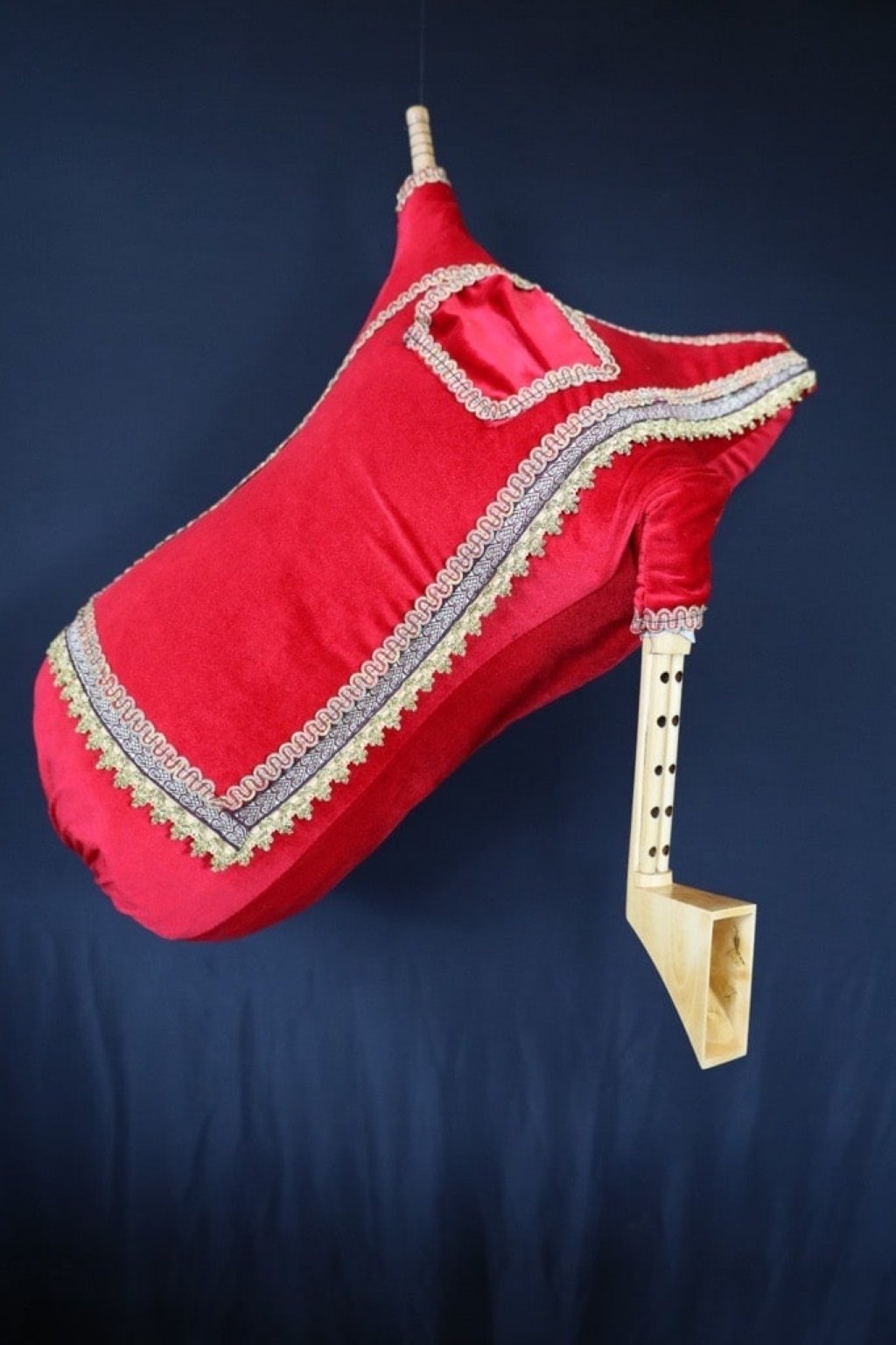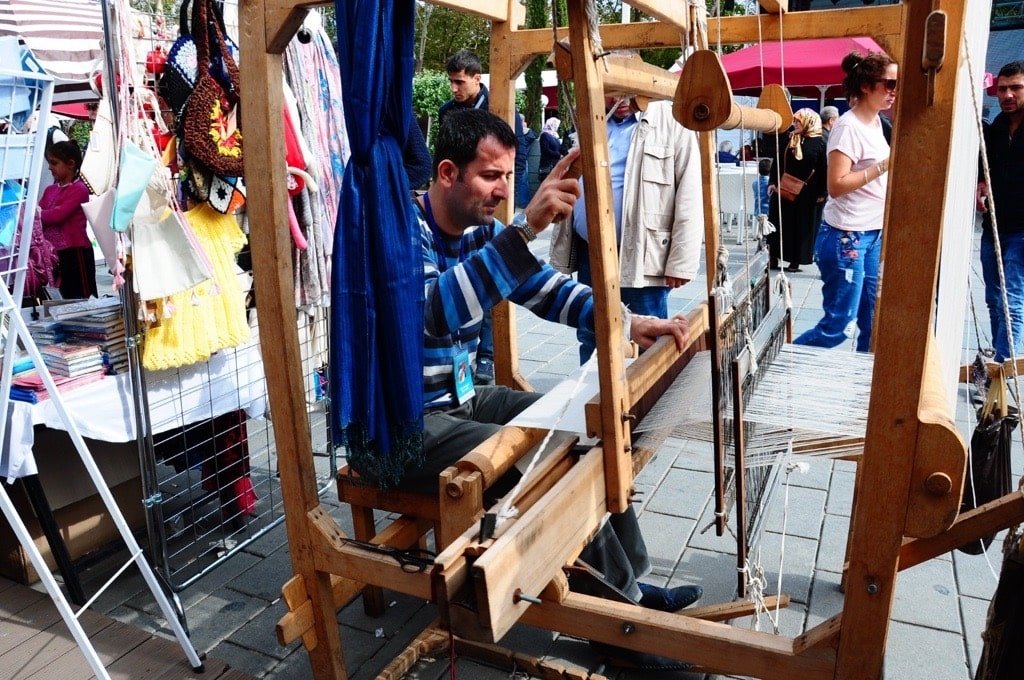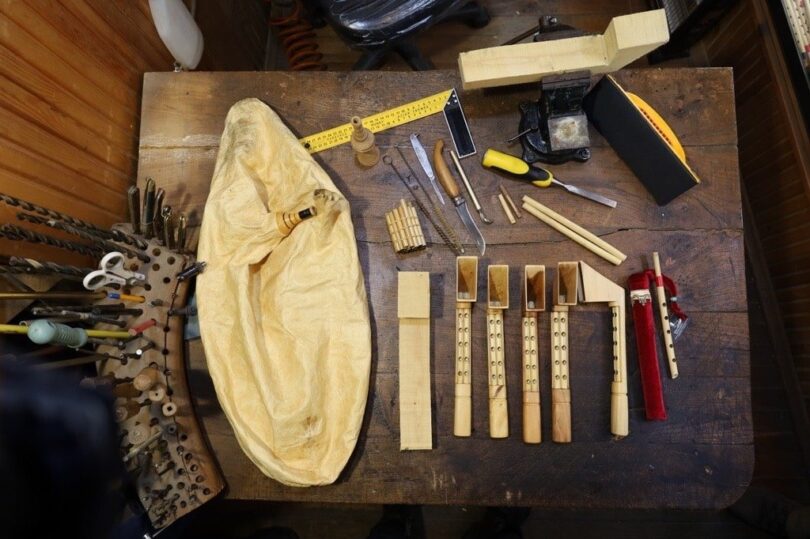ISTANBUL (Monitoring Desk) : The Ministry of Culture and Tourism submitted two new cultural values to UNESCO – “Traditional bagpipe making and performance” and “Altıneller Traditional Handicrafts Festival” – to be evaluated for inclusion on the Intangible Cultural Heritage Lists in 2024.
Traditional bagpipe making and performance was submitted as a joint file with North Macedonia, under Türkiye’s moderation, to the Representative List of the Intangible Cultural Heritage of Humanity, while the Altıneller Traditional Handicrafts Festival was nominated as a national file for the list of Good Safeguarding Practices.
Bagpipes, a wind instrument with a long history, have been played in various regions of the country for centuries. Bagpipe making is a traditional craft that has been passed down from generation to generation.
There are different bagpipes played in various regions of the country, such as the “Tulum” in the Black Sea region and the “Gayda” in the Aegean and Mediterranean regions.

The craft of bagpipe making requires great skill and expertise, as well as knowledge of the characteristics of the different woods and materials used. The body of the bagpipe is typically made of a hollowed-out tree trunk, such as the mulberry tree, which is well-suited for the purpose because of its durability, resonance and natural acoustic properties.
Other woods that are commonly used for the instrument include boxwood, juniper and ebony. The reeds for the bagpipe are typically made from cane, which is carefully selected and shaped to produce the desired sound. The bag itself is made of animal skin, such as goat or sheepskin, which is carefully treated and cured before being sewn into shape. The bag is then fitted with a blowpipe and a chanter, which is part of the instrument that produces the melody.
On the other hand, the “Altıneller Traditional Handicrafts Festival” is an annual event held in the Altıneller Village of the Kırıkkale province in Türkiye, aiming to preserve and promote traditional Turkish handicrafts, which are an important aspect of the country’s cultural heritage.
It features various activities, such as exhibitions, workshops and demonstrations of traditional handicrafts, including weaving, embroidery, woodcarving, pottery and copperwork. Visitors can watch and even participate in these activities to learn more about traditional Turkish handicrafts.

The festival also includes cultural and artistic performances, such as traditional music and dance shows, as well as food and beverage stands offering local specialties. The festival attracts many visitors from all over Türkiye and abroad, and it has become an important platform for preserving and promoting traditional Turkish handicrafts and culture.
Türkiye currently ranks third in the world with 25 cultural values registered in the UNESCO Intangible Cultural Heritage list.
In December, three multinational values of Türkiye – tea as a cultural symbol, the telling tradition of Nasreddin Hodja, and silk weaving – were also added to UNESCO’s List of Intangible Cultural Heritage.
Meanwhile, the Ministry of Culture and Tourism submitted five new cultural values to UNESCO for evaluation in 2023.
With these additions, the number of registered cultural values will increase to 30 by December 2023. As a result, Türkiye is expected to rise to second place in the ranking of countries with the most cultural values registered on the UNESCO lists.
Courtesy: Dailysabah







